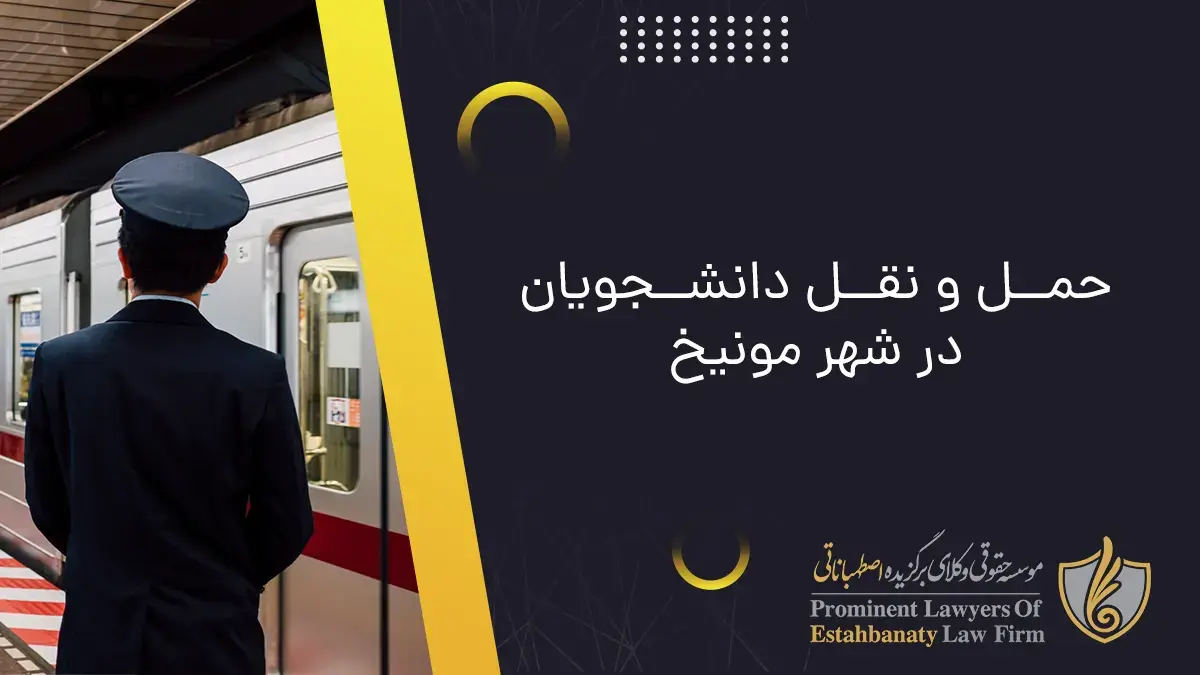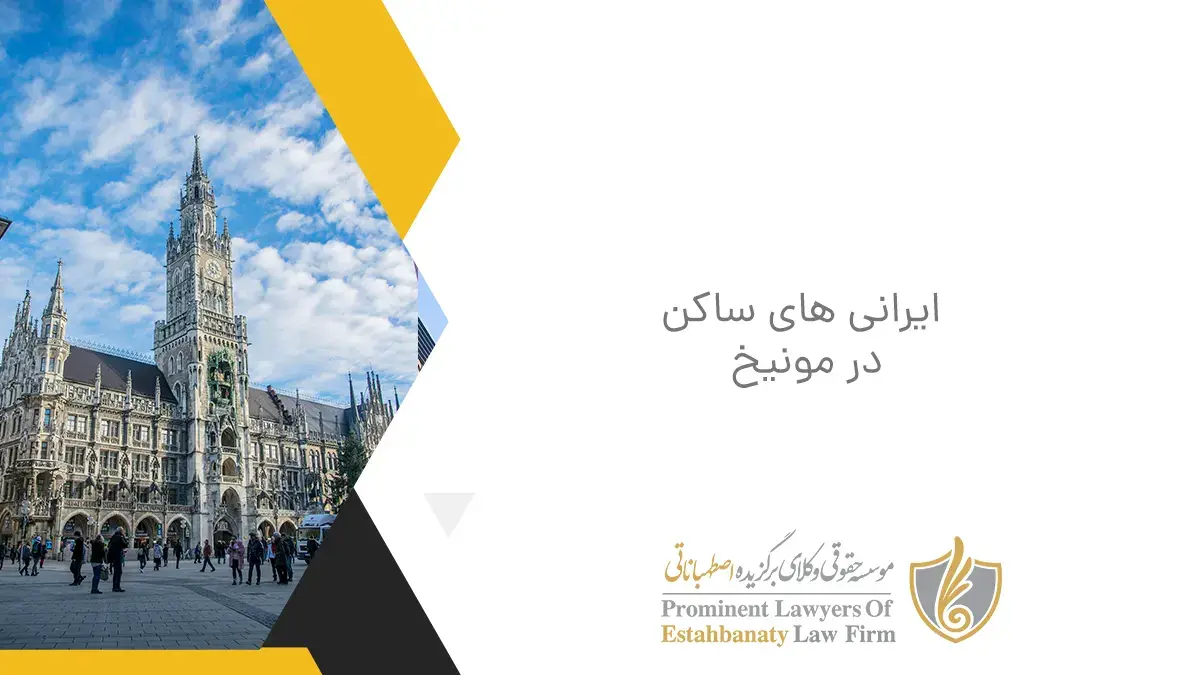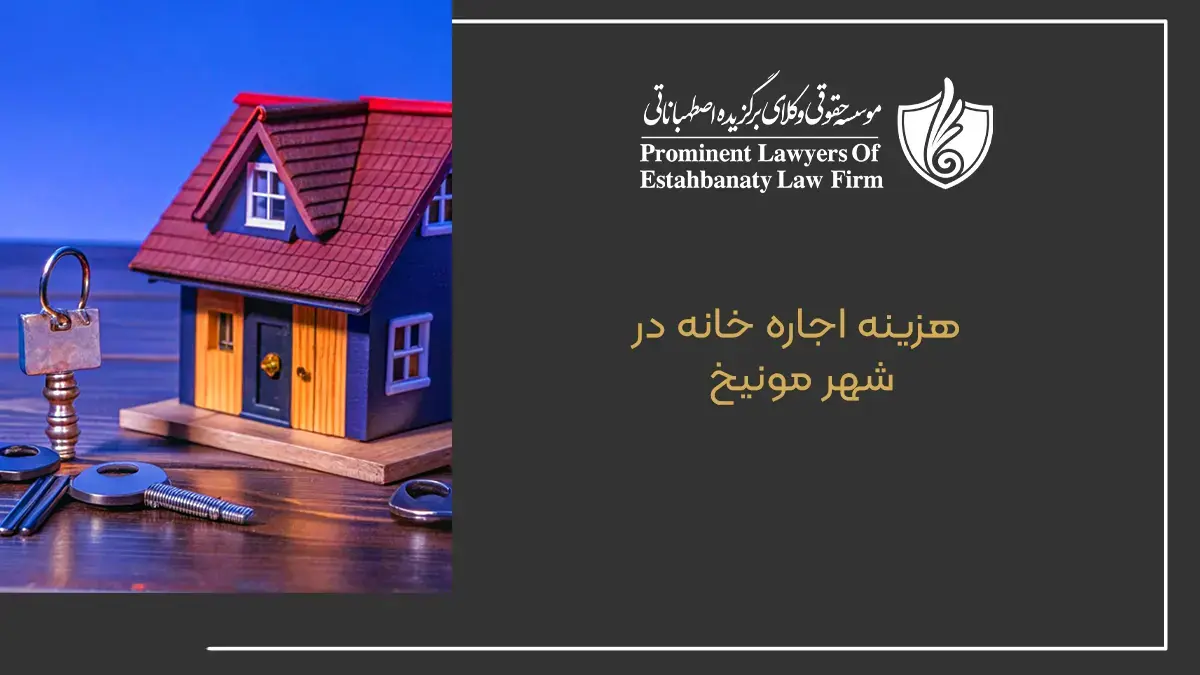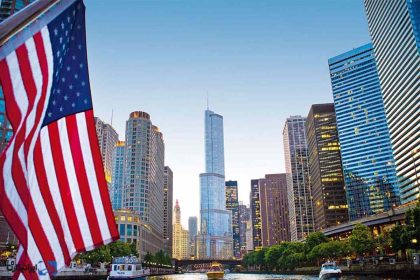Munich, the capital of the state of Bavaria in Germany, is one of the most beautiful and attractive cities in Europe. In 2024, the city continues to be a popular tourist destination with its blend of rich history, outstanding architecture, unique culture and advanced technology. This article from Estehbanati Migration Institute examines all aspects of this fascinating city and provides complete information on tourist attractions, restaurants, culture and daily life in Munich. This guide will help you to visit Munich with a more comprehensive view and more knowledge and enjoy your trip to the fullest.
General and comprehensive information about the city of Munich
| Feature | Description |
| Geographical location | The third largest city in Germany, the capital of the state of Bavaria, located in the south of Germany |
| the crowd | About 1.5 million people |
| official language | german |
| currency unit | euro |
| the weather | Continental temperate with cold winters and hot summers |
| The best time to travel | Spring (March to May) and early autumn (September and October) |
| Tourist attractions | Marienplatz Square, Frauenkirche, English Garden, BMW Museum, Neuenschwanstein Castle |
| Important events | Oktoberfest, Munich International Film Festival, Fashion Week |
| Transportation | Efficient public transportation system including metro, bus and tram |
| shopping | Modern shopping centers and traditional markets |
| food | Traditional Bavarian cuisine and international restaurants |
| life | A city with a high quality of life, many job opportunities, and a relatively high cost of living |
| History | A rich history with roots in the Middle Ages |
| culture | A city with a rich and artistic culture, hosting numerous museums and galleries |
If you are planning to immigrate to Germany and want to succeed in this path, the Estabnati immigration collection is one of the best choices for you. Start your new life in Germany by choosing our consultants.
How is life in Munich? (Review from an immigrant’s point of view)
Munich, the heart of Bavaria and one of the most beautiful cities in Germany, attracts thousands of immigrants every year. But how is life in this city? Let’s take a look at the benefits and challenges of living in Munich from an expat’s perspective.
Advantages of living in Munich
- High quality of life: Munich is consistently recognized as one of the cities with the highest quality of life in the world.
- Clean air, many recreational facilities, efficient public transportation system and strong infrastructure are among the factors that have given this city a high quality of life.
- Strong economy: As the economic center of Germany, this city provides many job opportunities in various industries, including automotive, information technology and finance.
- Rich culture: With numerous museums, theaters, concerts and diverse cultural events, this city provides a dynamic and lively environment for art and culture enthusiasts.
- Warm people: Munich people are generally warm and hospitable and easily communicate with expats.
- Strong Education System: Germany is generally known for its high-quality education system, and Munich is no exception. The universities of this city are internationally recognized.
- Beautiful nature: Around Munich there is a lot of beautiful nature that you can travel and enjoy on weekends.
Challenges of life in Munich
- High cost of living: Munich is one of the most expensive cities in Germany. The cost of housing, food and transportation in this city is higher than in other German cities.
- Finding accommodation: Finding suitable accommodation in Munich, especially in the city centre, can be challenging.
- German Language: If you are not fluent in German, you may face problems in some cases. Although many people in this city speak English, knowing German will help you get to know German culture better and have more job opportunities.
- Distant relatives: If your family and friends live in another country, you may feel homesick for them.
Better understanding of Munich weather
Munich, one of the best cities in Germany, has a temperate continental climate. This means that the city experiences four distinct seasons:
- Winter (December to February): Munich winters are cold and wet. Snow and frost are common in this season and the air temperature usually reaches below zero degrees Celsius.
- Spring (March to May): Spring in Munich is a very attractive season. The weather is gradually getting warmer and nature is starting to bloom. There is a lot of rain in this season.
- Summer (June to August): Munich summers are hot and sunny. The air temperature is usually between 20 and 25 degrees Celsius.
- Autumn (September to November): Autumn in Munich is a colorful season full of attractive leaves. The weather is getting cooler and the rainfall is increasing.
Important points about the weather in Munich:
- Sudden temperature changes: Munich’s weather can change quickly. Even in one day, you may see sunshine change to rain.
- Humidity: Humidity can be high in Munich, especially in summer.
- Wind: Cold and dry winds in winter and hot and humid winds in summer blow in this city.
How much does it cost to rent a house in Munich?
Whether you intend to immigrate to Germany for work or other ways of immigrating and living in Munich, it is important to know the cost of renting a house in Munich before you arrive in this city. Renting a house in Munich is one of the most important and challenging issues for residents and people who plan to live in this city. As one of the most populous and expensive cities in Germany, Munich is facing a continuous increase in demand for housing, which has a direct impact on rental prices. In the following, the influencing factors on the cost of renting a house in Munich and different rental rates will be discussed.
Factors affecting the cost of renting a house
The cost of renting a house for people who intend to study in Germany and other immigration methods are:
1. Geographical region:
One of the main factors that affect the cost of renting a house in Munich is the geographical area. Areas like Schwabing, Maxvorstadt, and Lehel, which are closer to commercial and cultural centers and have access to more amenities, command higher prices. In contrast, peripheral areas further from the city center such as Milbertshofen or Neuperlach have lower rents.
2. Size and type of housing:
The dimensions and type of housing also have a great impact on the cost of rent. Small apartments and suites are usually cheaper than larger apartments and villas. For example, a one-bedroom apartment in the city center may cost around €1,500 to €2,000 per month, while a three-bedroom apartment in the same area can cost upwards of €3,000.
3. Housing situation:
The condition and internal facilities of the housing also affect the cost of rent. Newly built houses and apartments with modern facilities such as equipped kitchens, advanced heating systems and double-glazed windows usually have higher prices.
4. Proximity to public facilities:
Proximity to metro, bus and tram stations, schools, universities and shopping centers are also other factors that affect the rental price. For example, apartments that are close to German universities such as the Technical University of Munich (TUM) or the Ludwig Maximilian University (LMU) usually have higher prices.
Rental rates in Munich
According to recent statistics, in 2024, the average rent in Munich for a one-bedroom apartment in the city center is around 1,600 euros per month, while in the suburbs this figure drops to around 1,100 euros. For three-bedroom apartments, the average rent in the city center is around 3,000 euros and in the suburbs around 2,000 euros per month.
We recommend that you always familiarize yourself with the exact cost of renting houses and other things before moving to Munich. To get more and more detailed information in this field, you can contact the experts of Istehbanati immigration group.
How is transportation in Munich? Do students have a student transport card?
Transportation in Munich is one of the strengths of this city, which as one of the largest urban centers in Germany, has an extensive and efficient public transportation system. This system includes subway (U-Bahn), tram (Tram), bus (Bus) and suburban trains (S-Bahn). In the following, the details of transportation in Munich and the special facilities provided for students will be discussed.
Public transportation system
Munich’s public transportation system includes:
1. Subway (U-Bahn):
Munich’s subway system consists of 8 lines (U1 to U8) that provide access to most parts of the city. These connected and regular lines provide the possibility of fast and comfortable movement in the city. Metro stations are widely scattered throughout the city and the time between trains is less than 5 minutes during peak hours.
2. Suburban trains (S-Bahn):
The S-Bahn trains consist of 10 lines (S1 to S8, with two branches for S4 and S6) connecting Munich to the surrounding suburbs and cities. These trains start from the central station of Munich (Hauptbahnhof) and continue to distant areas such as Munich Airport.
3. Tram:
The tram is one of the oldest means of transport in Munich and consists of 13 different lines. This system is especially useful in the city center and high-traffic areas and provides access to places not covered by the subway and S-Bahn.
4. Bus:
Munich’s bus network consists of more than 70 different lines that help complete the city’s public transportation network. Buses are especially useful in areas not covered by metro and trams.
Tickets and fees
Munich public transport tickets come in a variety of formats, including single, day, weekly and monthly tickets. Single tickets usually cost around 3 euros, while monthly tickets usually cost around 55 to 90 euros depending on the area covered.
Transportation for students
Students in Munich have special discounts for using public transport. Most universities, including the Technical University of Munich (TUM) and the Ludwig Maximilian University (LMU), offer their students a transport student card. These cards allow students to use public transportation at a lower cost.


1. Student card (Semesterticket):
Students can benefit from significant discounts by purchasing Semesterticket. This ticket is sold on a semester-by-semester basis and usually costs around 200 euros for one semester. With this ticket, students can travel on all public transport lines within Munich without time limit.
2. Basic ticket (IsarCard Semester):
Some universities also offer a basic ticket called the IsarCard Semester, which costs less and allows students to travel for free during certain hours of the day.
Bicycle and car sharing
In addition to public transportation, Munich offers other options for getting around the city. The bike sharing system (MVG Rad) and car sharing (Carsharing) are also very popular in Munich. These systems help to reduce traffic and pollution and make moving in the city easier.
With a comprehensive and efficient system, transportation in Munich makes moving around the city easy and convenient for residents and visitors. Students can also use the transportation student cards to benefit from all public transportation facilities at a reasonable cost and easily access universities and other parts of the city. These features make life in Germany go very well for everyone in Munich.
How is the work situation in Munich for immigrants?
Munich, the capital of the state of Bavaria and one of the most important economic centers of Germany, is an attractive destination for business migrants due to economic prosperity, numerous international companies and high quality of life. The work situation in Munich is very suitable for expats due to the many job opportunities and variety of industries. In the following, the details of the work situation in Munich for expats will be examined.
labor market
The job market in Munich is as follows:
1. Key industries:
Munich is known as one of the technology and innovation centers of Germany. Key industries include information and communication technology, automotive, engineering, biotechnology, and the financial and insurance sectors. Companies like BMW, Siemens, Allianz and Munich Re are located in this city and provide many job opportunities.
2. Need for expertise:
Due to Munich’s focus on advanced industries, the need for a highly educated and specialized workforce is high. Technical skills, knowledge of the German language and relevant work experience can increase the chances of success in the job market.
Job opportunities
Job opportunities offered to immigrants in Germany include:
1. International companies:
The existence of headquarters and branches of many international companies in Munich provides many job opportunities for immigrants. These companies are usually looking for multilingual and specialized workforce.
2. Startups:
Munich is one of the most important startup centers in Europe. The presence of accelerators and active investors in this city has increased job opportunities and cooperation in startups for immigrants.
Work and residence permit
To work in Munich, immigrants need to obtain a work and residence permit. EU citizens do not need a work visa, but non-EU citizens must apply for a work and residence visa. This process includes the submission of a job offer from a reputable employer and approval by the German immigration authorities.
Networking and training
Networking and connecting with professionals through career events, conferences, and professional forums can help you find career opportunities. Also, expats can use German language courses and workshops to improve their skills.
Investigating the living conditions of Iranians in Munich
Munich, the capital of the state of Bavaria, is one of the most advanced and prosperous cities in Germany, which has attracted a significant number of Iranians. Iranians living in Munich have migrated to this city for various reasons such as job opportunities, education and high quality of life. In the following, various aspects of the life of Iranians in Munich will be investigated.
Population and geographic distribution
Iranians in Munich are scattered in different areas of the city, but many of them live in the central areas and suburbs close to the city center. Popular areas include Schwabing, Maxvorstadt and Lehel, which are close to universities and business centers.
Education and training
One of the important reasons for the migration of Iranians to Munich is the outstanding educational opportunities that this city offers. Technical University of Munich (TUM) and Ludwig Maximilian University (LMU) are among the top European universities where many Iranian students study. By providing diverse and high-quality educational programs, these universities have become the basis for the scientific and career advancement of Iranians.


Employment and entrepreneurship
Iranians in Munich work in various industries, including information technology, engineering, medicine, and business. Many Iranians have worked in prestigious international companies using their education and expertise. Also, a number of Iranians in Munich are entrepreneurs and have established successful companies.
Social and cultural life
The Iranian community in Munich participates in various social and cultural activities due to its rich culture and ancient history. Various Iranian associations are active in Munich, which help to preserve and promote Iranian culture and support new immigrants. These associations organize various programs including national festivals, art exhibitions and literary meetings.
living expenses
Munich is one of the most expensive cities in Germany and the cost of living there is high. However, many Iranians have managed to live comfortably in this city with proper financial management and using job and educational opportunities.
Table: Comparison of some aspects of Iranian life in Munich
| aspect | Description |
| education | Studying at top universities such as TUM and LMU, access to advanced educational programs |
| employment | Job opportunities in various industries including information technology, engineering, medicine and business |
| culture | Activities in Iranian associations, holding festivals and cultural ceremonies, supporting new immigrants |
| expenses | High living costs, need for proper financial management, use of job and educational opportunities |
| Geography | Dispersion in different areas of the city, concentration in central areas and suburbs close to the city center |
Thank you for being with us in this article from Istehbanati Migration Institute. To get more information on immigration to Germany and also to start this path, just contact our experts.
summary
Munich, the capital of the state of Bavaria in Germany, is known as one of the most beautiful and attractive cities in Europe. With a combination of rich history, outstanding architecture, unique culture and advanced technology, this city is a popular destination for tourists and expats.
An efficient public transportation system, diverse job opportunities in various industries, and top universities such as the Technical University of Munich (TUM) and the Ludwig Maximilian University (LMU) are some of Munich’s strengths. Despite the high cost of living, the high quality of life and many amenities have made Munich an attractive destination for living and working.
Frequently asked questions
1- What is Munich famous for?
Munich is known for its rich history, unique culture, Oktoberfest, and the presence of major companies such as BMW and Siemens.
2- How much does it cost to live in Munich?
Munich is one of the most expensive cities in Germany. The costs of housing, food and other daily needs are high, but the high quality of life and amenities justify these costs.
3- How to transport in Munich?
Munich has an efficient public transportation system, including subways, trams, buses, and suburban trains (S-Bahn) that provide access to all parts of the city.
4- What are the job opportunities in Munich?
With numerous international companies and a dynamic labor market, Munich offers many career opportunities in various industries, including IT, engineering, medicine and finance.
5- Is Munich suitable for studying?
Yes, Munich is one of the best study destinations in Europe, with top universities such as the Technical University of Munich (TUM) and the Ludwig Maximilian University (LMU).
RCO NEWS


















